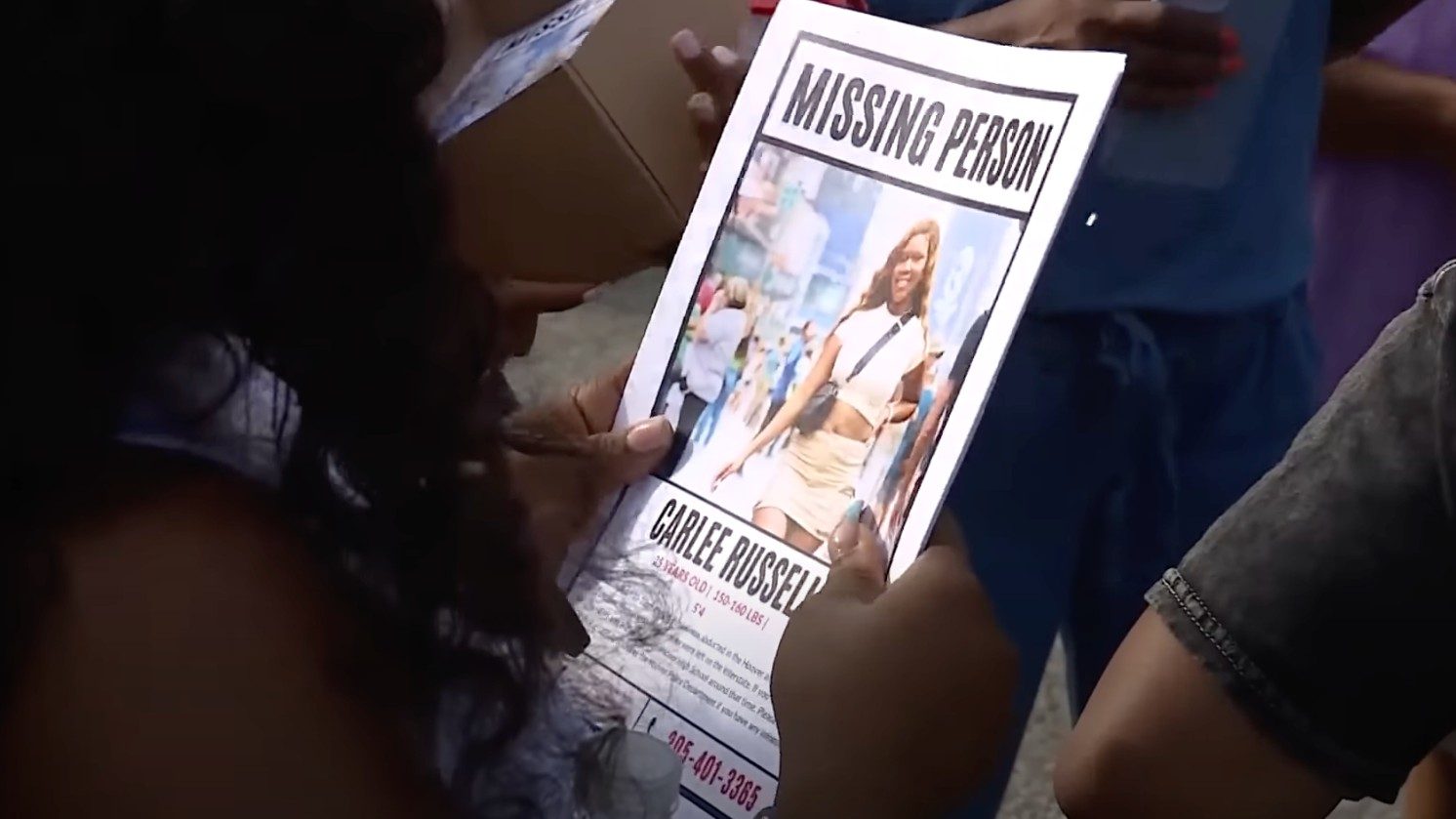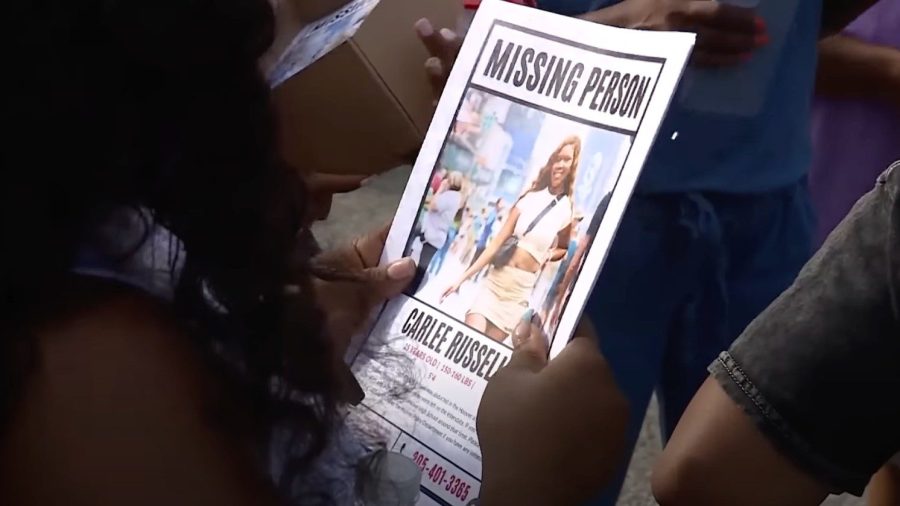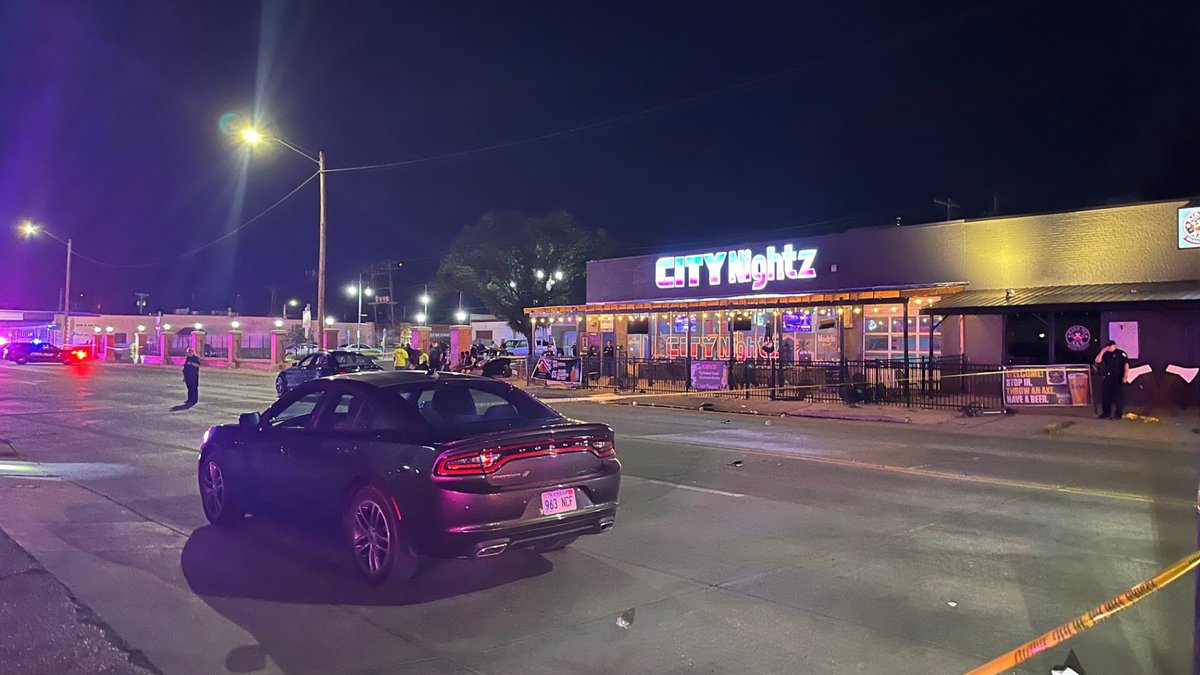Notes on Faith: What can Carlee Russell teach us about ‘Amazing Grace’ — and moving forward?
After a week of mixed emotions, Revs. Alisha Lola Jones and Calvin Taylor Skinner reflect on Carlee Russell through a The post Notes on Faith: What can Carlee Russell teach us about ‘Amazing Grace’ — and moving forward? appeared first on TheGrio.

After a week of mixed emotions, Revs. Alisha Lola Jones and Calvin Taylor Skinner reflect on Carlee Russell through a faith-based lens of spiritual formation, grace, and collective empowerment.
“Notes on faith” is theGrio’s inspirational, interdenominational series featuring Black thought leaders across faiths.
Phew, what an emotional rollercoaster of a news cycle this week, right, Fam? We watched the headlines and followed closely the events surrounding a temporarily missing young woman, Carlee Russell, as we hurriedly forwarded texts and tweets and reposted the latest developments on her story, all with bated breath. Then, of course, endless commentary was also provided via social posts, memes, and the like — so we do not have to relive it all, right?

However, we can acknowledge the range of emotions that hit us when Carlee’s disappearance made the headlines — followed by a new rush of feelings once it was reported she’d made it home and yet another as she and her family seemingly closed ranks instead of divulging precisely what happened. Amid our collective sigh of relief as we heard the news of her return, there was an anticlimactic bittersweetness; wondering whether we’d risen to the occasion only to have potentially wasted both emotion and resources.
Can we admit our collective disappointment?
This is a safe space, so yes, let’s be honest about unresolved feelings and questions surrounding Carlee’s return. However, we can also recognize how they correspond to the feelings of those experiencing their prodigal sons’ and daughters’ stories as they unfold — because prodigality is an essential and collective lesson in navigating the aftermath of such an emotional event. It is also an inevitable part of our reckoning with our feelings of having wasted time, energy, and money.
On one hand, some of us were suspicious of the events from the onset. On the other hand, there were those of us who stood firm upon simply praying for Carlee’s safe return — and, like it or not, in both instances, we were affirmed. But even as we acknowledge the range of emotions (which may rightfully include disappointment, disdain, and distrust), there is a pathway forward from this event, leading us toward fortifying our collective vigilance and spiritual growth.
Because Family, unfortunately, of the innate fallibility of our human condition, this will not be the last moment that tests our trust and vigilance.
Yes, we can feel our feelings — but we should also consider this moment’s emotional and spiritual implications as similar moments inevitably occur. This incident was far from the first of its kind, but with the social media attention economy, we can expect more of these viral moments to leave us disappointed and asking more questions than we receive answers. Establishing a solid spiritual compass helps us process events like these and move forward as we balance our assessment of these scenarios.
With an established, centered perspective about how people’s private lives often spill into the public square, we can observe precarious moments while keeping the main thing, the main thing. Because as the popular saying goes: “We all we got.”
Whether in reference to Carlee Russell or any other moment, we do not need to succumb to colonized thinking as details unfold. A colonized view is more committed to how her story bolsters the credibility of Black women or Black people, fixated on persuading the broader public she was worthy of the attention and resources rather than cleaving to other triumphs, such as the swift strategic response from the community. The colonized construct has placed upon the Black community an unrealistic standard the dominant culture does not carry out itself.
Indeed, so much healing needs to take place. So much attention towards finding missing mothers, fathers, sons, and daughters needs to take place. In her recent op-ed for TheGrio, co-founder of the Black and Missing Foundation Natalie Wilson brilliantly lays out the necessity of our continued vigilance in finding missing Black people. We already know how often we are ignored as a people; how our credibility is constantly called into question. However, whether a hoax or something far more complex, because of our awareness of how white supremacy works, one sketchy incident cannot stop our show. We cannot control the details of this matter; we never could. What we can address is how we move collectively to find and create spaces for grace and accountability among our own.
The fact remains we still have an astounding number of Black and brown girls and women who are missing without a trace. We can’t afford to flinch every time news breaks of a person in our community in distress, nor can we afford to ignore it as we rebuild trust.
Ultimately, it is colonized constructs that keep us fatigued on every side, weary of scrutiny, waiting for the entire story, when, in truth, every minute counts in these situations.
With this conveyed, we repeat: Carlee Russell’s credibility has no actual bearing on Black credibility regarding future crises.
The spiritual implications of our pastoral lens tend toward embracing a balance of grace and accountability, one found through the well-known biblical “Parable of the Prodigal Son.” Here we have a son who defied his father by not only demanding his inheritance before being entitled to it, but then having the nerve to squander the wealth he demanded. After his self-inflicted harm, he had no other choice but to return home, knowing how the spectating community would likely view and deride his return, concluding he got what he deserved.
There comes a time when family matters — even matters that have spilled into and played out in the public square — when those matters return to one’s household, there is an opportunity for them to be sorted with simultaneous celebration, reasoning, and self-examination. As a community, we must be willing and open to understanding there are elements of our stories only The Creator can read and comprehend deeply.
The human condition will always confront us with people and moments that will disappoint us. But in those instances where the offender has returned to themselves, searching for what is redeemable will help us along in our individual and collective healing. The universe will align accordingly.
As children of the Baptist/Pentecostal tradition, this week, our prayer takes a cue from an exchange shared between Rev. Calvin and his mother:
Rev. Calvin: “Why were you so forgiving and gracious towards that person?”
Mother Skinner: “I may need the same grace one day.”
With that in mind…
May grace abound.
May we who receive grace, know that grace isn’t cheap.
It is costly, and we all will have to give an account.
So what we exchange, may it align with the great plan of our Divine Creator
Peace for all, nothing missing.
Nothing broken. Amen.

Rev. Dr. Alisha Lola Jones is a faith leader helping people to find their groove in a fast-paced world, as a consultant for various arts and faith organizations and professor of music in contemporary societies at the University of Cambridge in Cambridge, England. She is an award-winning author of Flaming? The Peculiar Theopolitics of Fire and Desire in Black Male Gospel Performance (Oxford University Press). For more information, please visit DrAlisha.com.
Rev. Calvin Taylor Skinner is dedicated to empowering frontline communities in Knoxville, Tenn. and the United Kingdom. He uses Faith and Policy to address energy justice, criminal justice reform, voter education/mobilization, electoral politics, and global affairs. Along with his wife, Rev. Dr. Alisha Lola Jones, they lead InSight Initiative, a consulting firm focusing on capacity building and live events production.
TheGrio is FREE on your TV via Apple TV, Amazon Fire, Roku, and Android TV. TheGrio’s Black Podcast Network is free too. Download theGrio mobile apps today! Listen to ‘Writing Black‘ with Maiysha Kai.
The post Notes on Faith: What can Carlee Russell teach us about ‘Amazing Grace’ — and moving forward? appeared first on TheGrio.












